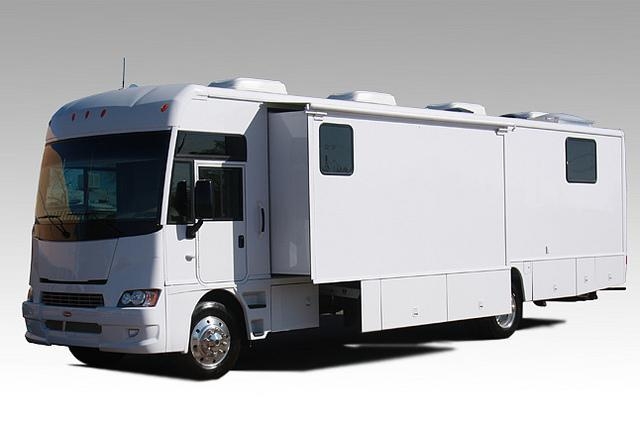Mobile Health Vehicles- Delivering Healthcare at Doorsteps

Mobile health vehicles have emerged as one of the most effective ways to provide basic healthcare services to remote and rural areas which lack proper medical infrastructure and facilities. These vehicles are specially designed to function as mini medical clinics on wheels equipped with essential medical equipment and supplies to treat common illnesses. They serve as an extension of the formal healthcare system by bringing primary care closer to underserved communities.
Role in bridging healthcare gaps
One of the major roles played by mobile health vehicles is in bridging gaps in healthcare access between urban and rural populations. According to government reports, at least 30% of rural areas in the country still lack access to basic healthcare facilities within a reasonable distance. Factors like inadequate transportation options, long travel distances and high transportation costs deter many from seeking regular medical care. Mobile Health Vehicles help overcome geographical barriers by travelling to villages on a fixed schedule and providing doorstep services. This ensures critical services reach remote areas which would otherwise remain neglected due to lack of access.
Addressing shortage of medical personnel
Another significant benefit is in addressing shortage of healthcare workforce in rural areas. Data shows that over 60% of doctors in the country are concentrated in cities despite over 65% of the population living in villages. Mobile Health Vehicles help alleviate this shortage by enabling limited medical services to be delivered through a visiting health team. Trained paramedics onboard the vehicles conduct check-ups, screen for diseases, dispense basic medicines and refer cases requiring specialized care. This system leverages available medical manpower optimally and supplements their efforts to expand the reach of primary care providers.
Role in disease screening and prevention
Regular visits by mobile health vehicles aid in timely screening, detection and management of common illnesses at the community level. Paramedics conduct camps that offer screenings for diabetes, hypertension, oral cancers and women’s health issues. Early diagnosis through such screenings along with health education on prevention norms can help curb rising cases of lifestyle diseases in rural India. Mobile units also support national immunization days by carrying out outreach vaccination drives to boost coverage for childrenliving in remote settlements. This strengthening of preventive healthcare at the grassroots helps build general immunity and reduces disease burden over the long run.
Improving maternal and child health outcomes
Mobile health vehicles are specifically useful in maternal and child healthcare service delivery in underserved regions. Pregnant women can avail of basic antenatal checkups, treatment for minor complications, distribution of iron tablets and referral as needed. For newborns, services like immunizations, growth monitoring, management of neonatal illnesses are provided. This ensures continuity of care closer to home, especially during medical emergencies. Furthermore, paramedics impart health education to expecting mothers and caretakers on issues like nutrition, breastfeeding, neonatal emergencies etc. Such community engagement has proven effective in promoting institutional deliveries and improving maternal-child health indicators in rural areas served.
Challenges faced
While mobile health vehicles have brought commendable improvements in expanding geographical access, some challenges still persist. Procuring and maintaining specialized vehicles suitable for varied terrains requires large upfront costs which rural health programs often find difficult to bear. Staffing vehicles with qualified paramedics on a regular basis whereas recruitment and retention of such workforce in remote settings remains an issue. Ensuring uninterrupted supply of essential medicines and diagnostic kits also poses logistical challenges. Morever , lack of robust coordination with the formal healthcare system constrains effective continuation of care and follow-ups. Such operational hurdles need addressed through innovative financing models and digital integration of mobile units within the existing public health architecture.
Role of technology and innovation
Technology and innovations are playing an increasing role in strengthening the impact of mobile health services. Some vehicles have been equipped with basic diagnostic technologies like foetal dopplers, ECG and sugar testingmachines enhancing their capability for point-of-care testing. Others utilize telemedicine by connecting with specialist doctors for virtual consultation during outreach visits. This allows management of more serious illnesses without the need for travel. Mobile apps have also been designed to allow paramedics record patient histories, upload diagnostic results for expert opinion and schedule follow-up care seamlessly. When coupled with digitization of medical records, such technologies improves quality and continuity of care delivered through mobile units and health outcomes.
To summarize, mobile health vehicles have emerged as a pioneering model for taking healthcare directly to people's doorsteps, especially in remote rural populations lacking infrastructure and access to hospitals. By addressing barriers of distance, cost and personnel shortage, these vehicles have played a pivotal role in strengthening preventive healthcare delivery, disease management and bridging geographical divides in access. Continued focus on overcoming operational challenges through innovations aligned with the public health system's priorities can help sustain and optimize their impact on community health in underserved regions over the long-term.
Get more insights on Mobile Health Vehicles
About Author:
Money Singh is a seasoned content writer with over four years of experience in the market research sector. Her expertise spans various industries, including food and beverages, biotechnology, chemical and materials, defense and aerospace, consumer goods, etc. (https://www.linkedin.com/in/money-singh-590844163)
- Industry
- Art
- Causes
- Crafts
- Dance
- Drinks
- Film
- Fitness
- Food
- Games
- Gardening
- Health
- Home
- Literature
- Music
- Networking
- Other
- Party
- Religion
- Shopping
- Sports
- Theater
- Wellness
- News


